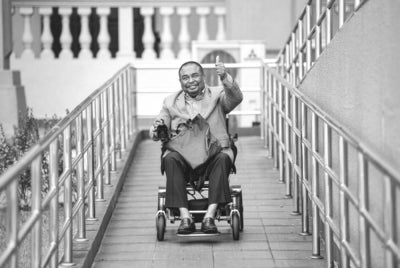Record or report? What to do if you witness an abuse
The existence of video evidence could be instrumental but it may also have its cons.
SHARIFAH SHAHIRAH
SHAH ALAM - A recorded video can potentially serve as evidence, but it might cause negative consequences for the victims.
All Women’s Action Society (AWAM) Information and Communications Officer Amanda Shweeta Louis said while the existence of video evidence could be instrumental in establishing the assault and assisting the survivor in seeking justice against the perpetrator, the public sharing of such videos may also have adverse consequences for the victims.
“It can perpetuate a sense of violation and invasion of privacy, as their traumatic experience is now made available for the public.
“The constant reminder of the assault through the circulation of the video online can intensify feelings of shame, embarrassment and fear of judgment which may cause the survivor to isolate themselves further and deter from seeking justice,” Amanda said when contacted recently.
Thus, Amanda advised witnesses to promptly report the incident to authorities including the police to safeguard the well-being of survivors and ensure accountability for the abuser.
She added that if it was safe, witnesses could document the incident by taking notes, photos, or videos, which could serve as valuable evidence for legal proceedings.
Amanda stressed that for witnesses of domestic violence or abuse, the primary guidance often involves ensuring their own safety before intervening in potentially hazardous situations.
“Moreover, it is important for friends and family of the survivor to offer non-judgmental support and encourage the survivor to seek professional help if necessary.
“This includes providing them with comprehensive support services and ensuring that their voices and experiences are centred in any discussions or actions taken regarding the assault.
“Additionally, more awareness programmes on bystander intervention can be conducted to combat the various forms of intimate partner violence,” she added.
Upon this, Amanda urged society to prioritise more and protect the well-being and autonomy of survivors.
She said there was a need for increased awareness programs on bystander intervention to address various forms of intimate partner violence.
Upon this, Amanda highlighted the importance of society prioritising the well-being and autonomy of survivors.
Video recordings were becoming increasingly crucial in exposing and prosecuting assault cases, particularly those targeting women.
Previously, there had been instances in cases where these digital pieces of evidence are proving vital for police investigations and court proceedings, bringing perpetrators to justice and offering potential support to victims.
One such case involved a man who allegedly slapped his ex-girlfriend inside a car during a misunderstanding in October last year, which triggered an investigation by the police.
The 22-second clip, coupled with a complaint from the 21-year-old victim, prompted action under Section 323 of the Penal Code.
Similarly, Pahang police launched an investigation in June 2023 after footage emerged of a 29-year-old man, known for online harassment, allegedly assaulting a restaurant worker.
A separate video, lasting 59 seconds, showing an assault on a female driver near Lata Iskandar also led to the suspect's remand. Both investigations proceeded under Section 323.
The impact of digital evidence extended beyond physical assaults.
In February 2023, a woman in Melaka documented her husband's physical abuse in a 32-second video.
With neighbours as witnesses and the victim's complaint as well as backed by the video evidence, it resulted in charges under Section 18A of the Domestic Violence Act and Section 323.
Download Sinar Daily application.Click Here!














